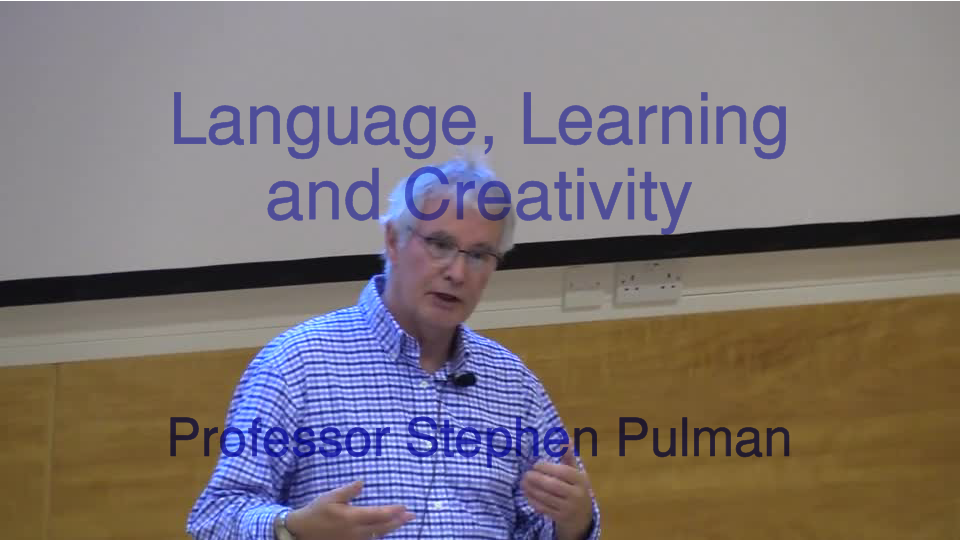Language, learning and creativity
Duration: 1 hour 13 mins
Share this media item:
Embed this media item:
Embed this media item:
About this item

| Description: | Stephen Pulman's talk for the seventh annual wheeler lecture addresses the linguistic aspects of the Turing test, the creative aspect of language use, and the implications for machine learning. |
|---|
| Created: | 2018-06-13 13:05 |
|---|---|
| Collection: | Annual Wheeler lectures |
| Publisher: | University of Cambridge |
| Copyright: | Prof. Stephen Pulman |
| Language: | eng (English) |
| Keywords: | Turing Test; Machine Learning; Natural Language Procssing; |
| Abstract: | It’s nearly 70 years since the Turing test was proposed as an operational test for intelligence in computers, and it is still a subject that provokes much discussion. One important aspect of the Turing Test is linguistic ability, and one important aspect of that ability is what Chomsky called “the creative aspect of language use”, the ability of language to serve as “an instrument for free expression of thought, unbounded in scope, uncontrolled by stimulus conditions though appropriate to situations”.
With every new wave of progress in artificial intelligence, such as that promised by the current “deep learning” paradigm, it’s natural to ask the question whether these advances get us any nearer to a machine that could pass the Turing test, or that could use language creatively. In this talk, Stephen Pulman explores these issues, in particular looking at some parallels between the implications for human learning that we could derive from current deep learning methods, and the intellectual climate of behaviourism and empiricism in language learning and use that Chomsky was reacting against. |
|---|---|
Available Formats
| Format | Quality | Bitrate | Size | |||
|---|---|---|---|---|---|---|
| MPEG-4 Video | 640x360 | 1.95 Mbits/sec | 1.05 GB | View | Download | |
| WebM | 640x360 | 1.35 Mbits/sec | 741.52 MB | View | Download | |
| iPod Video | 480x270 | 525.61 kbits/sec | 281.03 MB | View | Download | |
| MP3 | 44100 Hz | 252.47 kbits/sec | 134.99 MB | Listen | Download | |
| Auto * | (Allows browser to choose a format it supports) | |||||

